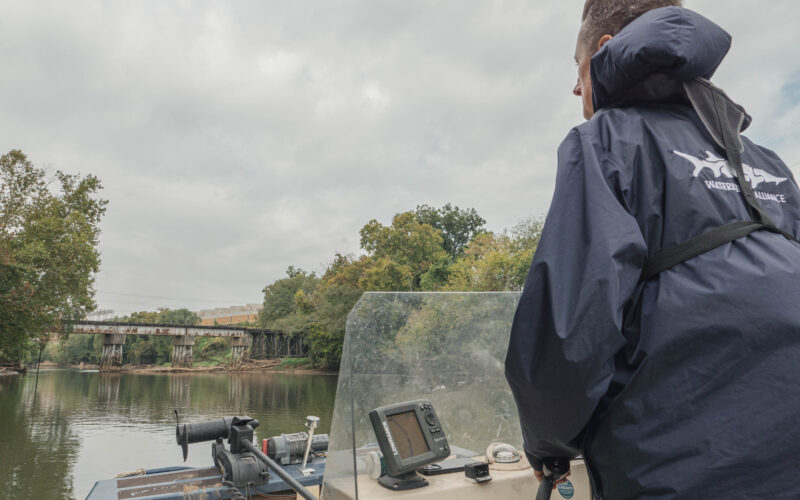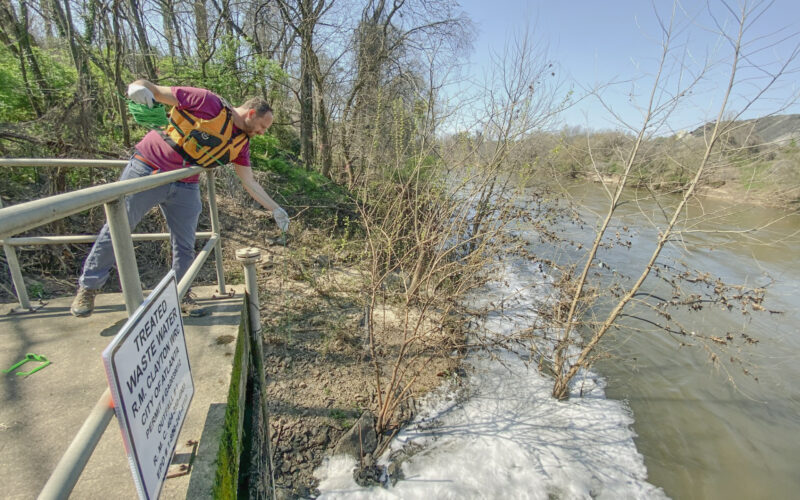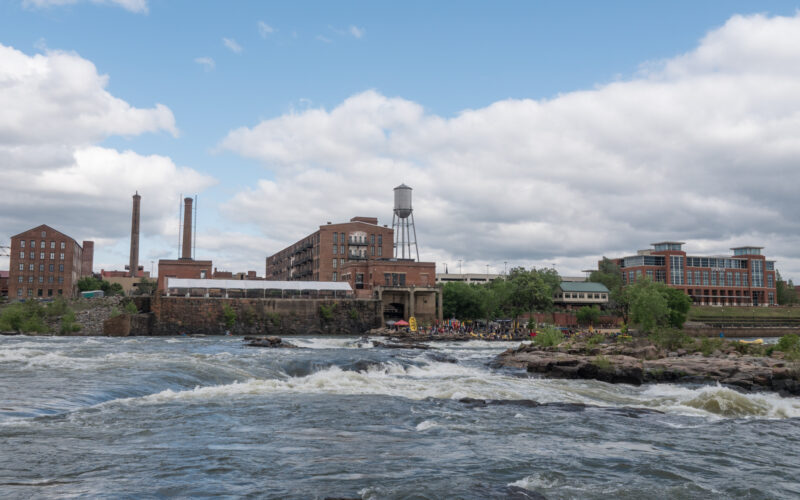Each year, Chattahoochee Riverkeeper joins its partners in the Georgia Water Coalition (GWC) to advocate for Georgia’s waterways before the Georgia General Assembly. We spend time at the Capitol advocating for new laws that will protect our environment and fighting against rollbacks that will degrade our water quality. We lobby our legislators and engage our members to use their voices to reach their own lawmakers.
Below is a brief rundown of our biggest successes in 2020.
Coal ash legislation passes!
Since 2015, CRK has been advocating for greater protections for our waterways against the threats posted by toxic coal ash stored in landfills and in unlined pits at Georgia Power’s power plants across the state. There are three power plants along the Chattahoochee River, and the utility plans to leave this toxic waste exposed to groundwater at all three sites.
Luckily, this year, Georgia passed its first law addressing the threats posed by the long-term storage of toxic coal ash. We should celebrate this victory while recognizing that much more must be done to address the planned permanent storage of this dangerous waste in unlined pits alongside a number of Georgia’s rivers. We need a law that requires excavation and disposal of toxic coal ash in permitted, lined landfills away from our groundwater and surface water resources.
SB 123 (introduced by Sen. William Ligon) closes a coal ash loophole that currently encourages out-of-state coal ash dumping in Georgia solid waste landfills. The bill would raise the surcharge that local governments can charge per ton of coal ash from $1 to $2.50, in line with the surcharge on regular household garbage.
SB 123 passed the House on June 23 by a vote of 142-15, and due to minor amendments changing the effective date, received final agreement by the Senate on June 24 (39-9).
While it crossed over to the Senate and was voted out of the Senate Natural Resources Committee, ultimately failed to move out of Senate Rules and get to the floor for a vote. HB 93 was introduced by Rep. Rick Williams and sought to require Georgia Power and the Georgia Environmental Protection Division to provide notice when the utility began draining wastewater from its coal ash ponds as part of its closure activities. The bill gained traction following an excellent amendment from Sen. Lindsey Tippins that ensured notice would be provided to impacted communities before the pumping of the wastewater into our rivers and lakes. This was a timely bill that should have become law. HB 929, which will require long-term monitoring of groundwater around coal ash ponds, failed to receive a vote out of Senate Natural Resources.
Read more about coal ash in Georgia Water Coalition’s press release.
Trust funds on the November ballot – Vote YES!
The Trust Fund resolution passed! GWC has worked for more than a decade to advance this constitutional amendment to restore honesty in our state government. Over the years, the state has raided “trust funds” like the Solid Waste and Hazardous Waste funds that were collected to help state and local governments address tire dumps, repair problems at landfills and remediate hazardous waste sites.
HR 164 allows Georgia voters to amend our state constitution and require that fees collected for these purposes go to the trust funds. The constitutional amendment will empower the General Assembly to direct government collected fees – like Georgia’s Environmental Protection Division’s $1 scrap tire discarding fee – toward their stated purpose.
The ballot question will read: “Shall the Constitution of Georgia be amended so as to authorize the General Assembly to dedicate revenues derived from fees or taxes to the public purpose for which such fees or taxes were intended?”
Come November, please vote “yes” to this amendment and help bring back truth in state fee allocation.
Final push to stop rollback of Georgia’s “Right to Farm” Law
GWC is celebrating the non-passage of HB 545, which would have eliminated existing protections for farmers and rural property owners under the existing “Right to Farm” Law. This bill is part of a national effort by corporate agricultural operators of large-scale hog farms to weaken property rights and protections so that concentrated animal feeding operations can operate with little consequence. Throughout the 2020 Georgia General Assembly, GWC helped organize widespread, bipartisan opposition to this attack on Georgians’ property rights.
Following a last-minute floor amendment by Republican leaders that mitigated some of its most damaging provisions, the bill passed the Senate with just enough yes votes to move back to the House. Despite the changes, it remained an unnecessary and harmful bill. Fortunately, the House declined to act on the bill and it failed to pass on Sine Die. You can read the bill as amended here.
Legislators in both parties recognized that there is no good reason to eliminate the existing law, and certainly no need to alter the statute of limitations for nuisance lawsuits in a way that encourages and protects new large-scale industrial livestock operations to the detriment of existing farmers and property owners.
We expect this attack on rural property rights will return in 2021, and GWC will continue to take a stand in opposition.
CRK and its partners in the Georgia Water Coalition will be coordinating throughout the rest of the year and preparing for a fresh legislative session in January 2021. We see first-hand just how big an impact personal contact from constituents has on your legislators—you can make a difference! Please don’t hesitate to contact General Counsel Kevin Jeselnik or Policy Director Chris Manganiello if you have questions about our legislative work or want to get more involved.


